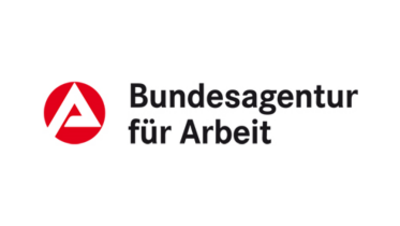Vocational training in the sector of transport and logistics offers diverse and future-proof career opportunities. This professional field is of high importance to organize the transport of goods and people in an efficient and sustainable way. The logistics industry is an ideal way of entry; especially for those interested in a varied occupation, in which organisation, planning and communication play a crucial role. Whoever likes to get behind the wheel will discover what they are looking for. Find out about professional options in the sector now and find a place for vocational training suitable for you.

Vocational training: transport and logistics in Germany
In the sector of transport and logistics, apprentices are in demand! Are you interested in the vocational training? Here you will find information on this topic.
Good to know: transport and logistics in Germany
Germany is located in the centre of Europe and has a very well-developed infrastructure by global standards. Transporting goods is essential to keep the economy running: every day, thousands of transport orders are placed in Germany. The logistics industry counts as one of the biggest economic sectors in Germany. The majority of goods are currently transported by heavy goods vehicles (HGV). Railway transport, maritime transport and inland navigation are secondary forms of transport. Public passenger transport adds to this range: busses, trains, underground trains and trams can be found throughout Germany.
Therefore, qualified staff in the field of transport and logistics is indispensable for the German economy. Young professionals are sought after! There is a multitude of professions which are necessary for moving goods and people without trouble.
Here are some examples of what the industry is all about:
- Planning, coordinating and putting into practice processes in logistics and transport routes
- Steering and maintaining vehicles
- Planning, coordinating and supervising traffic operations to transport passengers and goods to their destination safely, efficiently and punctually
- Accepting and storing goods efficiently
- Finding solutions for logistic challenges
Vocational training professions in the transport and logistics sector in demand
In the transport and logistics sector, there are a lot of options for vocational training, depending on whether you would like to steer the wheel yourself, have an interest in occupations within warehouses or choose the commercial route. Unfortunately, the following links leading to the individual professions are only available in German. We recommend using a translation tool.
Here are three examples of vocational training professions which are currently in high demand in Germany.
Drivers:
- Driver - BERUFENET – Federal Employment Agency
- Skilled transport employee - BERUFENET – Federal Employment Agency
In the storage and logistics sector:
Each of these professions have their own focus. Vocational training in these three professions takes three years to complete. In other professions in the warehouse and logistics sector, vocational training only takes two years to complete. If you are interested in another sector (for example, the railway or navigation), or if you would like to complete commercial vocational training in logistics, there is a range of other vocational training programmes in the industry! For example, you can inform yourself on the BERUFENET website of the Federal Employment Agency.
As a professional driver in Germany

Where can I complete vocational training?
In the transport and logistics industry, there are many options for completing vocational training. They generally take place within the dual vocational training system: This means that you learn the practicalities directly in the company, and you learn the theory in vocational school. Learn more about this topic in our “Dual vocational training” section.
Here are the typical employers of the industry:
- Industry, trade and haulage companies
- Railway, navigation and bus companies
- For logistics: wholesale and foreign trade companies
- Municipal employers like councils of cities and greater areas (civil service)
How much do I earn during vocational training?
During dual vocational training, you will be remunerated via a training allowance paid by the training company. In Germany, there is a legal minimum training allowance of 682 euros (valid for the year of 2025) for all professions. Here you will find a rough estimate of how much you will earn during vocational training in the transport and logistics industry.
- Driver: €682 – €1,305 per month (gross income)
- Skilled transport employee: about €682 – €1,314 per month (gross income)
- Warehouse logistics operator: about €682 – €1,370 per month (gross income)
You should also know the following:
- You have to pay social security contributions from your gross income, for example for statutory heal insurance, pension insurance and unemployment insurance. These contributions are deducted automatically, before you receive your net income in your bank account.
- During vocational training, you only pay income tax if you have a higher gross income than €1,385 per month (in tax bracket I; as of 2025).
- In this sector, working in shifts is a possibility, however, this is generally remunerated by bonuses.
What are determining factors for the training allowance?
The training allowance may depend on…
- …the region in Germany, where you are trained.
- …the company in which you are trained.
- …the training year you are currently in. The allowance increases with each training year.
Which requirements do I have to meet?
For vocational training you generally require a school-leaving certificate. For vocational training in the dual system, you do not need to have it recognised for the visa. For school-based vocational training, the recognition of the foreign school-leaving certificate may be necessary. Good German skills are very important for vocational training, for example for vocational school. There is also the option of completing a language course in Germany to prepare for vocational training. Learn more details on the general requirements for vocational training here.
The additional soft skills that are mostly expected from applicants for vocational training in the transport and logistics sector are the following:
- Planning and organisational skills
- A sense of responsibility
- Communicativeness
- Physical fitness
Foreign language skills are an advantage, for example, to communicate with international clients.
Have you already learned or worked in a profession, or do you have an academic degree? No problem! You can additionally complete vocational training. It can even be an advantage if your previous experience is related to the transport and logistics sector. Having your previous qualification recognised is not required.
Prospects after vocational training
After successfully completing vocational training, you have very good chances of being permanently employed in the transport and logistics sector. Your training company might offer you a permanent position as an employee, or you may search for a new employer with your newly awarded qualification.
There are also opportunities for further education and professional development: you can improve your career opportunities with additional qualifications. With further education, you can prepare yourself for leading positions: for example, drivers can acquire the title of Meister or Meisterin for road transport. Trained skilled workers for warehouse logistics can receive continuing training to become a Meister or Meisterin in logistics.
Moreover, in many cases, academic studies might be a good option to learn more, for example in the subjects of logistics or supply chain management. Being self-employed is also an option, for example with a goods transport company.
To learn more about the general options after vocational training, please refer to the “Prospects after vocational training”. On BERUFENET, you will find information on the job-specific options, depending on the vocational training.
Salary after vocational training
Would you like to know how much you will earn after having completed vocational training?
The best way to find out about the current salary levels is online research. Depending on the profession and specialisation, the salary ranges may differ. Similar to the training allowance, there is a difference depending on which federal state you work in, how large the company is, etc. Therefore, you should make sure to look up information according to your situation and refer to multiple sources.
For instance, use the Entgeltatlas (remuneration atlas) of the Federal Employment Agency. Here are some examples:
- Drivers: ca. €2,930 gross per month
- Skilled transport employee: €3,289 gross per month
- Warehouse logistics operator: €3,094 gross per month
You can also find more salary examples for your desired profession in search engines.
Gross or net? What you should know
The salaries are indicated as gross amounts. This means that taxes and social security contributions still have to be deducted, before knowing the net salary. You will find more information on that in the “Salary, taxes and social security” section.
Information on the web
- Federal Ministry of Education and Research – Praktisch unschlagbar! Useful links on vocational training
- Federal Institute for Vocational Education and Training (BIBB) Profiles of several occupations requiring vocational training
Do you have any questions?
Let us advise you on your opportunities to work and live in Germany. Our experts will support you with questions regarding job search, visa, recognition and learning German.
You can find out more about the various contact options by clicking on one of the icons in the bar below.



